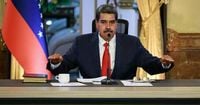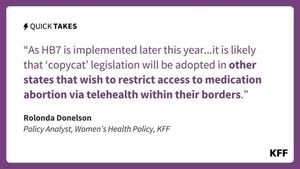The official YouTube account of Venezuelan President Nicolás Maduro has vanished from the video platform, stoking outrage in Caracas and intensifying an already heated standoff between Venezuela and the United States. The account, which boasted more than 200,000 followers, went offline late Friday, September 19, 2025, with Venezuela’s state-run broadcaster Telesur publicly lamenting its sudden disappearance and claiming it was “eliminated” without justification.
According to Telesur, the account’s removal occurred late at night, catching many in the Venezuelan government off guard. The channel had served as a key outlet for Maduro’s speeches and clips from his weekly television program, often doubling as a mouthpiece for the administration’s messaging. The abrupt blackout has sparked a wave of speculation, with some officials in Caracas denouncing the move as politically motivated censorship, while others see it as the latest chapter in a deepening diplomatic crisis between Venezuela and the U.S.
Google, YouTube’s parent company, has so far remained silent, declining to respond to repeated inquiries from both Venezuelan officials and international media outlets. On its website, YouTube outlines that it may eliminate accounts found to have committed “repeated violations of community guidelines,” including the spread of misinformation, hate speech, or content that “interferes with democratic processes.” Yet, as of Monday, no official explanation has been offered for the takedown of Maduro’s account, leaving the Venezuelan government—and much of the world—guessing at the true rationale.
This digital drama arrives at a moment of escalating tension between Caracas and Washington. Just last month, the United States deployed eight warships equipped with long-range missiles to the southern Caribbean, near Venezuela’s coast. The flotilla, which is also transporting a landing force of some 2,000 marines, was described by the Trump administration as part of an anti-drug trafficking mission. According to the White House, the U.S. naval force has already destroyed three speedboats allegedly carrying narcotics, resulting in the deaths of more than a dozen people aboard those vessels.
But in Venezuela, officials see the American deployment as a thinly veiled threat to their sovereignty. The Maduro government has characterized the presence of U.S. warships as an overt act of aggression and an attempt to destabilize or even overthrow the current regime. “Caracas accuses the U.S. of plotting regime change under the guise of counter-narcotics operations,” reported OneIndia, echoing the sentiments expressed by Venezuelan state media and high-ranking officials.
The removal of Maduro’s YouTube account is thus being interpreted by many in Venezuela as part of a broader campaign to undermine the country’s leadership. Telesur, in its message on X (formerly Twitter), did not mince words, declaring the deletion to be unjustified and hinting at a possible connection between the platform’s decision and the ongoing geopolitical friction.
For years, Nicolás Maduro has been a polarizing figure both at home and abroad. Widely accused of electoral fraud, he has faced mounting criticism since last year’s presidential election, which opposition activists claim he lost by a landslide. According to the Associated Press, hundreds of opposition members gathered tally sheets that purportedly showed Maduro’s defeat, but Venezuela’s elections agency—controlled by the ruling socialist party—never released the official documents to support its assertion that Maduro was victorious.
The controversy surrounding Maduro extends far beyond election disputes. In 2020, he was indicted by a federal court in New York on charges of conspiring to traffic cocaine into the United States. The U.S. government has repeatedly labeled Maduro a drug cartel leader, with White House officials insisting he must be brought to justice. In a dramatic escalation, the U.S. recently doubled its bounty for Maduro’s capture, offering a staggering $50 million reward for information leading to his arrest.
Despite these tensions, Venezuela continues to sell oil to the United States and has agreed to take deportation flights of Venezuelan migrants from U.S. territory. Still, the relationship between the two countries has grown increasingly fraught, particularly with the recent military maneuvers in the Caribbean and the intensification of U.S. rhetoric against Maduro’s regime.
As for the YouTube account itself, its disappearance has left a noticeable void in the Venezuelan media landscape. The channel was not only a repository for official speeches but also a platform for government propaganda and public engagement. Its removal raises pressing questions about the boundaries of digital free speech, the responsibilities of global tech companies, and the role of online platforms in international disputes.
According to YouTube’s stated policies, accounts can be terminated for a range of offenses, including the dissemination of misinformation and interference with democratic processes. Yet, without a public explanation from Google, it remains unclear which specific violations—if any—triggered the removal of Maduro’s channel. This opacity has only fueled suspicions in Caracas that the move was orchestrated in coordination with Washington, a theory that finds fertile ground in the current climate of mutual distrust.
International observers are divided on the issue. Some argue that platforms like YouTube have a responsibility to police content that may undermine democratic institutions or spread dangerous falsehoods. Others caution that such actions risk being perceived as interference in the internal affairs of sovereign nations, especially when they target high-profile political figures during periods of heightened tension.
For Venezuelans, the loss of the president’s YouTube account is more than a technical glitch—it’s a flashpoint in an ongoing struggle over information, legitimacy, and national identity. With state media outlets like Telesur rallying to Maduro’s defense and American officials doubling down on their campaign to isolate his government, the episode underscores just how intertwined the worlds of digital media and international politics have become.
As the standoff continues, the fate of Maduro’s digital presence remains uncertain. Will YouTube offer a detailed explanation or reinstate the account? Will other platforms follow suit, or will this incident remain an isolated case? For now, the only certainty is that the battle for Venezuela’s future is being fought not just on the high seas or in the halls of government, but also across the sprawling, unpredictable terrain of the internet.




